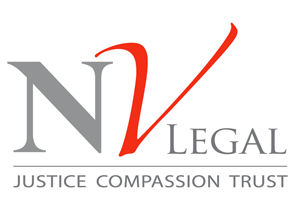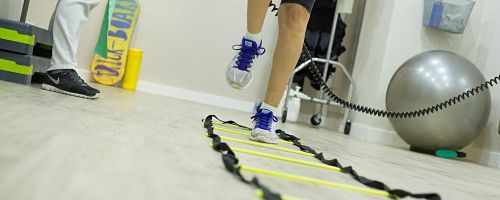Your rehabilitation rights after an accident
Personal injury claims can provide financial security to help those with injuries or illness but often it is the rehabilitation which can help restore a level of mental and physical wellbeing.
In turn this offers a sense of independence while providing much-needed support and care for the claimant.
Research has shown that in many cases, rehabilitation can help injured people recover more quickly, have a better quality of life, and return to work sooner than those who do not have access to a suitable rehabilitation programme.
According the Association of Personal Injury Lawyers (APIL), “There are many different forms of injury or illness and rehabilitation means different things to different people. Rehabilitation will ensure that an injured person achieves optimal physical, psychological and social function and, where appropriate, helps them to stay at or return to work.”
APIL lists examples of rehabilitation as:
Physiotherapy
Occupational therapy
Practical treatment
Counselling and psychological support
Vocational therapy
Speech therapy
Sports and recreational therapy
Hydrotherapy
Care regimes, support programmes
Housing
Acupuncture
Neurological treatment
It is essential that rehabilitation begins as soon as possible following an accident and using experienced lawyers who are members of APIL, such as NV Legal, will ensure that a rehabilitation programme is initiated at the correct time.
Solicitors have a duty to consider any cases suitable for rehabilitation from the earliest practicable stage, liaising with the claimant/their family and medical professionals. The claimants’ compensators then have 21 days to respond to requests for rehabilitation. They must justify a refusal to follow any of the rehabilitation recommendations.
THE REHABILITATION CODE
The Rehabilitation Code has helped transform the way the insurance industry handles personal injury claims.
It was last updated in 2015 and provides a framework in which insurers and lawyers can work together collectively. This ensures the health needs of injured people remain at the forefront of any claim.
Following an update to the Code in 2015, the process is now streamlined and there is a separate section for lower-value claims, these are claims with a value up to £25,000 or below.
Speaking at the time of the launch a spokesperson from the Association of British Insurers (ABI) said: “Rehabilitation can play a crucial part in helping people recover from injuries, and the Rehabilitation Code plays an important role of ensuring those patients get the right treatment as speedily as possible. Insurers, claimant lawyers and rehab providers have worked closely together during the update of the Code to ensure it remains as relevant and effective as possible. Those who are unfortunate enough to be hurt in an accident deserve quality care that puts their interests first, and insurers are committed to playing their part in providing that.”
The code aims to help the injured claimant make the best recovery possible following what would have been a traumatic injury or illness.
Throughout the process rehabilitation needs are assessed by independent professionals with appropriate qualifications, skills, and experience.
The Rehabilitation Code states that 10 markers should be considered when assessing an injured person’s rehabilitation needs. These are:
- Age
- Pre-existing physical and psycho-social conditions
- Return-to-work/education issues
- Dependants at home
- Location
- Mental capacity
- Activities of daily living in the short and long-term
- Realistic goals, aspirations, attainments
- Fatalities/those who witness major incidence of trauma within the same accident
- Length of time post-accident
For further information on rehabilitation contact NV Legal on 03330 112732 or visit www.nvlegal.co.uk
USEFUL LINKS:
https://www.apil.org.uk/files/think-rehab.pdf
https://www.csp.org.uk/conditions/rehabilitation
https://www.england.nhs.uk/wp-content/uploads/2016/04/rehabilitation-comms-guid-16-17.pdf
https://www.aftertrauma.org/life-after-trauma/rehabilitation-and-after-care


